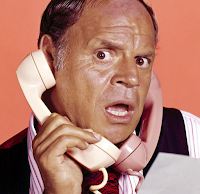Rosalie Lightning
Written and Drawn by Tom Hart
Published by St. Martin’s Press
A bit over halfway through Rosalie Lightning, as Tom and Leela Hart attempt to find some solace in the world after the sudden death of their young daughter, the couple try to escape reality for a short time by watching Fitzcaraldo, a movie about a man’s obsession to carry a steamship over a mountain. Instead of focusing on the meaning of the movie, Hart includes an almost inconsequential panel that’s a shot of the film’s director Werner Herzog saying, “If I end this now I would be a man without dreams.” The tragedy of Rosalie Lightning is that for the days and months following the death of their daughter, all Tom and Leela have are dreams of a daughter and they don’t want to let go of that dream.
The way that Hart includes that Herzog panel, without fanfare or much context, is such a strong indicator of why Hart continued to create this comic. The first few chapters of Rosalie Lightning were released as mini comics over the past few years, going back to 2012 (I wrote about it at Newsarama as one of the best comics of that year.) Hart’s cartooning is full of so much love and so much pain that you had to wonder why an artist would put himself the long process of creating a comic book about the death of a beloved child. And with a quote from Werner Herzog buried on page 147 of a 263 book, Hart provides answers of why he’s doing this even as he himself is asking so many questions of why did this happen and how are they supposed to live life after this tragedy?
In many ways, Rosalie’s life feels like a dream in this book because her loss is staggeringly evident already only pages into the story. Hart doesn’t hold anything back as he shares his grief with his audience as he’s showing these from her all-too-short life to introduce her to us. This beautiful child defines the book by her absence from Tom and Leela’s life. With her death, she becomes this dream of children and parents, of grace and loss, and of life and death that Hart cannot let go of at all. Rosalie Lightning becomes the dream of a child who should be laughing, playing, and filling her parents’ lives with all kinds of joy and wonder.
Hart’s haggard drawings reflect the cartoonist’s state of mind throughout this book. Like his writing, Hart’s artwork feels like it’s searching for something as well. You can see all of the emotions that Tom and Leela are experiencing but the pain they feel is manifested through Hart’s sometimes aggressive brushwork. From the joys of Rosalie, through the pain of losing her, and leading to the numbness that follows that pain, Hart allows the emotions of the moment to be reflected in his mark making. He even allows more a more cartoonier, more similar to his Hutch Owens art, to intrude into the book now and again to illustrate the more self-aware reflective moments of his storytelling.
The dream of joy fights against the depths of pain that Tom and Leela had to experience. Sometimes the joy wins and a kiss on the cheek of a mourning father is just what is needed to see a path out of the numbness. It is hard to imagine loving anything or anyone that much in your life until your life actually has that love in it so what happens when it’s gone? It’s impossible to understand if anyone can ever fully recover from that loss but it seems more like you redefine your life as being molded around the memory of that love. That’s the journey that Hart and his wife are forced take as they have to live through tomorrow, next week and next month without the joy of their daughter.










